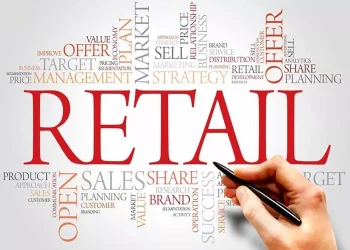Production insurance is a financial mechanism designed to provide coverage and financial assistance to businesses engaged in various manufacturing and production activities. This insurance type is crucial for mitigating risks associated with operational disruptions, property damage, and liability claims. This article will provide a detailed introduction to production insurance, its types, benefits, and how it operates within the financial landscape.
What Is Production Insurance
Production insurance is a specialized type of insurance tailored to protect manufacturing and production companies from various risks inherent in their operations. Manufacturing businesses often deal with complex processes, expensive equipment, and significant supply chain logistics, making them vulnerable to various unforeseen events. These events can range from natural disasters and equipment failures to liability claims and product recalls.
Production insurance aims to cover these risks, providing financial support to businesses when they suffer losses due to insured events. This insurance can help companies maintain their operations, pay for repairs, and meet their financial obligations, thereby enabling them to recover quickly from disruptions.
Types of Production Insurance
Production insurance comprises several types of coverages designed to address different risks. Here are some of the most common types:
1. Property Insurance
Property insurance covers damage to physical assets, including buildings, machinery, inventory, and other tangible property used in production. This insurance is crucial for manufacturing companies as their operations heavily rely on equipment and inventory.
Property insurance can cover losses due to natural disasters such as fires, floods, earthquakes, and hurricanes. It can also cover losses due to theft, vandalism, and other malicious acts. The coverage typically includes the cost of repairing or replacing damaged property and may also cover business interruption losses.
2. Business Interruption Insurance
Business interruption insurance provides coverage for lost income and additional expenses resulting from the temporary cessation of business operations due to a covered event. This insurance is essential for manufacturing companies as they often have significant fixed costs and rely on continuous production to generate revenue.
Business interruption insurance can cover lost profits, payroll expenses, rent or mortgage payments, and other operating costs. It can also cover the cost of relocating operations to a temporary location until the primary facility is restored.
3. Machinery Breakdown Insurance
Machinery breakdown insurance covers the cost of repairing or replacing damaged machinery and equipment due to sudden and unexpected breakdowns. This insurance is critical for manufacturing companies as equipment failures can lead to significant production losses and downtime.
Machinery breakdown insurance can cover various causes of equipment failure, including mechanical breakdown, electrical surges, and operator error. It can also cover the cost of preventive maintenance and inspections to reduce the risk of future breakdowns.
4. Product Liability Insurance
Product liability insurance covers claims made by consumers or third parties for injuries or damages caused by a company’s products. This insurance is essential for manufacturing companies as they are responsible for the safety and quality of their products.
Product liability insurance can cover the cost of legal defense, settlements, and judgments related to product liability claims. It can also cover the cost of recalling defective products and notifying consumers about potential hazards.
5. Workers’ Compensation Insurance
Workers’ compensation insurance provides coverage for medical expenses, lost wages, and death benefits to employees injured or killed on the job. This insurance is mandatory in many countries and states for businesses with employees.
Workers’ compensation insurance can cover the cost of medical treatment, rehabilitation, and disability benefits for injured employees. It can also provide death benefits to the families of employees killed in workplace accidents.
6. Cargo Insurance
Cargo insurance covers the loss or damage to goods in transit. This insurance is essential for manufacturing companies that rely on the timely delivery of raw materials and finished products.
Cargo insurance can cover various causes of loss, including theft, fire, water damage, and transportation accidents. It can also cover the cost of transporting replacement goods and paying customs duties on lost or damaged shipments.
Benefits of Production Insurance
Production insurance offers numerous benefits to manufacturing and production companies. Here are some of the key advantages:
1. Risk Mitigation
Production insurance helps companies mitigate the risks associated with their operations. By transferring the financial burden of unforeseen events to an insurance company, businesses can avoid significant financial losses that could threaten their solvency.
2. Business Continuity
Production insurance enables companies to maintain their operations during and after insured events. By providing coverage for lost income and additional expenses, this insurance helps businesses continue operating and serving their customers with minimal disruption.
3. Financial Stability
Production insurance contributes to the financial stability of manufacturing companies. By covering the cost of repairs, replacements, and legal claims, this insurance helps businesses avoid financial distress and maintain their creditworthiness.
4. Regulatory Compliance
Production insurance can help companies comply with regulatory requirements. In many countries and states, businesses are required to carry certain types of insurance, such as workers’ compensation, to operate legally.
5. Employee Protection
Production insurance, particularly workers’ compensation, provides essential protection for employees. This insurance ensures that injured workers receive medical treatment and financial support, which can improve employee morale and reduce turnover.
6. Access to Capital
Production insurance can enhance a company’s access to capital. Insurance coverage can be used as collateral for loans or to secure better financing terms, thereby enabling businesses to invest in growth and expansion.
How Production Insurance Operates
Production insurance operates through a combination of risk assessment, premium calculation, and claims processing. Here’s how it works:
1. Risk Assessment
Insurance companies assess the risks associated with a manufacturing company’s operations by evaluating various factors, such as the type of production, the value of assets, the location of facilities, and the company’s safety record. This assessment helps insurance companies determine the likelihood and severity of potential losses.
2. Premium Calculation
Based on the risk assessment, insurance companies calculate the premium, which is the amount a company must pay for insurance coverage. The premium reflects the insurance company’s expected cost of providing coverage, including the cost of claims, administrative expenses, and profit margins.
Premiums are typically calculated using a combination of actuarial models and industry benchmarks. Insurance companies may also offer discounts or surcharges based on specific factors, such as the company’s safety measures, claims history, and credit rating.
3. Claims Processing
If a manufacturing company suffers a loss due to an insured event, it can file a claim with its insurance company. The claims process typically involves several steps, including:
Notification: The company notifies the insurance company of the loss within a specified time frame.
Investigation: The insurance company investigates the claim to determine its validity and the extent of the loss.
Settlement: If the claim is valid, the insurance company agrees on a settlement amount with the company. The settlement can include cash payments, repairs, replacements, or other forms of compensation.
Payment: The insurance company pays the settlement amount to the company or its vendors, depending on the terms of the insurance policy.
Challenges in Production Insurance
Despite its benefits, production insurance faces several challenges, particularly in the manufacturing industry. Here are some of the key issues:
1. High Risks
Manufacturing companies often operate in high-risk environments, with complex processes and expensive equipment. This increases the likelihood and severity of potential losses, making it difficult for insurance companies to assess and price risks accurately.
2. Complex Policies
Production insurance policies can be complex and difficult to understand. This can lead to disputes and misunderstandings between insurance companies and policyholders, particularly regarding the scope and terms of coverage.
3. Rising Costs
The cost of production insurance has been rising due to various factors, including increased frequency and severity of natural disasters, advances in technology, and regulatory changes. These cost increases can make it difficult for manufacturing companies to afford adequate coverage.
4. Claims Fraud
Claims fraud is a significant problem in the insurance industry, including production insurance. Fraudulent claims can increase the cost of insurance for all policyholders and erode trust in the insurance system.
5. Global Supply Chain Risks
Manufacturing companies often rely on global supply chains, which can be vulnerable to various risks, such as political unrest, economic downturns, and natural disasters. These risks can disrupt production and lead to significant losses, making it challenging for insurance companies to provide adequate coverage.
Conclusion
Production insurance is a crucial financial tool for manufacturing and production companies. By providing coverage for various risks, this insurance helps businesses mitigate losses, maintain operations, and maintain financial stability. Despite its challenges, production insurance remains an essential component of risk management for manufacturing companies, enabling them to operate with confidence and resilience.
In summary, production insurance is a specialized type of insurance designed to protect manufacturing and production companies from various risks. It includes several types of coverages, such as property insurance, business interruption insurance, machinery breakdown insurance, product liability insurance, workers’ compensation insurance, and cargo insurance. The benefits of production insurance include risk mitigation, business continuity, financial stability, regulatory compliance, employee protection, and access to capital.
Related topics:






























